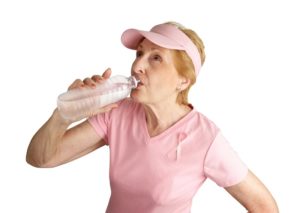2 Oct 2015
Senior Care Company Neighborly Home Care Offers a Guide on Preventing Dehydration in Seniors
 As we age, the water content within our body decreases. As a result, seniors require more water than younger adults to retain their optimal mental and physical conditioning. Dehydration has become a pervasive issue among American seniors, and the issue has been associated with an increased risk of mortality for hospitalized seniors. Families need to understand how to help their senior loved ones prevent dehydration. In this article, the senior care specialists at Neighborly Home Care provide their guide to preventing dehydration.
As we age, the water content within our body decreases. As a result, seniors require more water than younger adults to retain their optimal mental and physical conditioning. Dehydration has become a pervasive issue among American seniors, and the issue has been associated with an increased risk of mortality for hospitalized seniors. Families need to understand how to help their senior loved ones prevent dehydration. In this article, the senior care specialists at Neighborly Home Care provide their guide to preventing dehydration.
Tips for Preventing Senior Dehydration
Learn the Signs
Families should learn the signs that may indicate a senior is beginning to become dehydrated in order to help protect their loved ones from prolonged dehydration. One of the first clear signs that a person is suffering from dehydration is redness in the face. If the person’s face appears flushed, it is imperative they get access to water as quickly as possible to prevent further dehydration-related problems. Another common sign of dehydration is cramping in the legs and arms, as well as general weakness. If the senior reports any of these problems, the caregiver must provide access to water to help them re-balance their body’s fluid levels.
Make Liquids Available Throughout the Day
Seniors need to have access to liquids throughout the day, whether they’re in bed resting at home or out shopping. Often, seniors will choose to forgo water for a short period if the closest water access is inconvenient to get to at the time. By making sure their loved ones carry water with them when going outside and having cups of water available at their bedside during the nighttime, families can help seniors reduce the risk of dehydration.
Provide Preferred Beverages
While water is always the optimal liquid to prevent dehydration, seniors may prefer other liquids such as tea. These drinks can also be helpful in preventing dehydration over time, so family members who take care of a senior loved one should ensure that there is a selection of preferred beverages available. However, it’s important to remember that coffee, as well as some teas, contain caffeine which can exacerbate the symptoms of dehydration. Families should discuss beverage options with a health professional if dehydration is a persistent medical challenge for their senior relatives.
Recognize Periods of Increased Dehydration Risk
Families need to be able to recognize when their loved one is most at risk from suffering the symptoms of dehydration. For example, on long car trips during warm weather, dehydration can occur quickly. Families must be prepared for this issue by providing their elderly relatives with direct access to larger than usual amounts of water.
By following the above guidance from senior care specialists, families can help their senior loved ones overcome dehydration issues. To learn more on how to ensure compassionate care for senior loved ones, contact the team at Neighborly Home Care directly at 610-658-5822 or visit their informational website at https://www.neighborlyhomecare.com.
Contact Us
Are you a Home Care Worker?
Free Dementia FAQs eBook
The families we serve keep saying great things.
I just wanted to tell you how grateful we are that Neighborly Home Care stepped in & took over taking care of my Dad when we really needed it, no questions asked. Our caregiver has become part of the family and we know we can depend on her being there every day & taking great care of my Dad. He misses her when she’s not there!